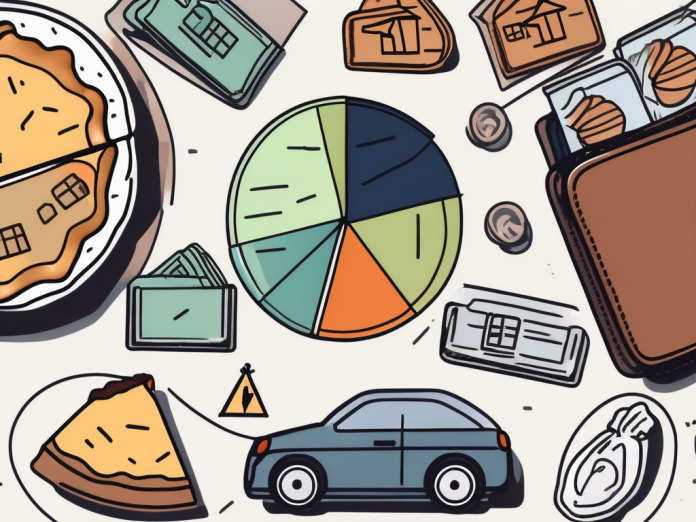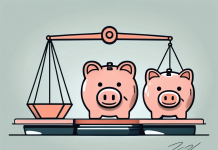
Creating and sticking to a personal budget is an essential step towards financial stability and independence. By taking control of your income and expenses, you can effectively manage your money, save for the future, and achieve your financial goals. In this step-by-step guide, we will explore the importance of a personal budget, how to start one, and the key elements involved in its implementation.
Understanding the Importance of a Personal Budget
Before diving into the process of creating a personal budget, let’s first understand why it is so crucial. Budgeting plays a vital role in financial management as it provides a clear picture of your financial situation and helps you make informed decisions about your money. By tracking your income and expenses, you can identify areas where you may be overspending and find ways to save more effectively.
Additionally, a personal budget allows you to prioritize your financial goals, whether it’s paying off debt, saving for a down payment on a house, or funding your dream vacation. It gives you control over your finances and empowers you to make choices that align with your priorities.
The Role of Budgeting in Financial Management
Budgeting acts as a roadmap for your financial journey. It provides you with a clear direction and helps you stay on track towards your goals. By analyzing your income and expenses, you can identify areas where you may need to make adjustments, cut back on unnecessary spending, or find ways to increase your income. Budgeting also enables you to anticipate future expenses and plan for them accordingly.
Benefits of Having a Personal Budget
Having a personal budget offers numerous benefits. Firstly, it provides you with a sense of financial security and reduces stress about money. By knowing exactly where your money is going, you can avoid overspending and prevent unnecessary debt. A budget also helps you build an emergency fund, ensuring you have money set aside for unexpected expenses.
Furthermore, a personal budget encourages a disciplined spending habit and promotes financial responsibility. It allows you to track your progress towards your goals and provides a sense of accomplishment when you achieve them. Lastly, budgeting can improve your overall financial well-being by helping you save for retirement, invest wisely, and build wealth over time.
Starting Your Personal Budget
Now that you understand the importance of a personal budget, let’s dive into the steps to get started.
Identifying Your Income Sources
The first step in creating a personal budget is to identify all your sources of income. This includes your salary, any side gigs, investments, rental income, and any other sources of money coming in. Make a list of all your income sources and calculate your total monthly income.
Listing Down Your Expenses
Once you have identified your income, it’s time to list down all your expenses. Start with your fixed expenses, such as rent or mortgage payments, utility bills, and loan payments. Then, move on to your variable expenses, including groceries, dining out, entertainment, transportation, and personal care. Be sure to also allocate funds for savings and investments.
It’s essential to be thorough and include all your expenses to get an accurate picture of your financial situation. Keep track of your expenses for a few months to capture any irregular or unexpected costs. Once you have a complete list, calculate your total monthly expenses.
Categorizing Your Budget
With your income and expenses identified, the next step is to categorize your budget to gain a better understanding of where your money is going.
Fixed and Variable Expenses
Separate your expenses into fixed and variable categories. Fixed expenses are those that remain the same each month, such as rent or mortgage payments, while variable expenses fluctuate depending on your choices and needs.
Identifying fixed expenses helps you determine the minimum amount of money you need each month to cover essential costs. Variable expenses, on the other hand, can be adjusted based on your financial goals or circumstances.
Needs vs. Wants: Making the Distinction
Another way to categorize your budget is by separating your needs from your wants. Needs are essential expenses, such as food, housing, and healthcare. Wants, on the other hand, are non-essential expenses like dining out, shopping for luxuries, or going on vacations.
Understanding the difference between needs and wants allows you to prioritize your spending and make informed choices about where your money should go. It helps you identify areas where you can cut back to save more efficiently or allocate funds towards your financial goals.
Setting Financial Goals
Now that you have a clear picture of your income, expenses, and budget categories, it’s time to set financial goals that align with your priorities.
Short-Term and Long-Term Goals
When setting financial goals, it’s essential to consider both short-term and long-term objectives. Short-term goals may include paying off credit card debt or saving for a vacation, while long-term goals could involve saving for retirement or purchasing a home.
Setting goals helps you stay motivated and focused on your financial journey. Be specific about your goals, assign timelines, and break them down into smaller milestones for easier tracking and achievement.
Prioritizing Your Financial Goals
Prioritization is key when it comes to allocating funds towards your financial goals. Identify which goals are most important to you and allocate the necessary resources. It’s essential to strike a balance between short-term gratification and long-term financial security.
Consider your current financial situation, the timelines of your goals, and any external factors that may impact your progress. Adjust your budget accordingly to ensure you are on track to achieving your goals.
Implementing Your Personal Budget
With your personal budget in place and financial goals set, it’s time to put your plan into action.
Tracking Your Spending
Regularly monitoring your spending is crucial to staying on track with your budget. Keep a record of every expense and compare it with your budgeted amounts. Use budgeting apps or spreadsheets to simplify the process and make it easier to track your progress.
By tracking your spending, you can identify areas where you may be overspending and make necessary adjustments. It also helps you stay accountable and ensures you are making choices that align with your financial goals.
Adjusting Your Budget Over Time
Remember that your personal budget is not set in stone. It is a dynamic tool that should evolve with your financial situation and goals. Regularly review your budget and make adjustments as needed.
Life is full of unforeseen circumstances, and your budget should adapt to changes such as a salary increase, unexpected expenses, or a new financial goal. Be flexible and willing to make changes to ensure your budget remains effective and relevant.
Creating a personal budget can seem overwhelming at first, but with a step-by-step approach, it becomes an empowering tool for managing your finances. By understanding the importance of a budget, starting with a comprehensive analysis of your income and expenses, categorizing your budget, setting financial goals, and implementing your plan, you can take control of your financial future. Remember, the key is consistency, discipline, and the willingness to adapt as needed. Start your personal budget journey today and pave the way towards financial stability and success.



























